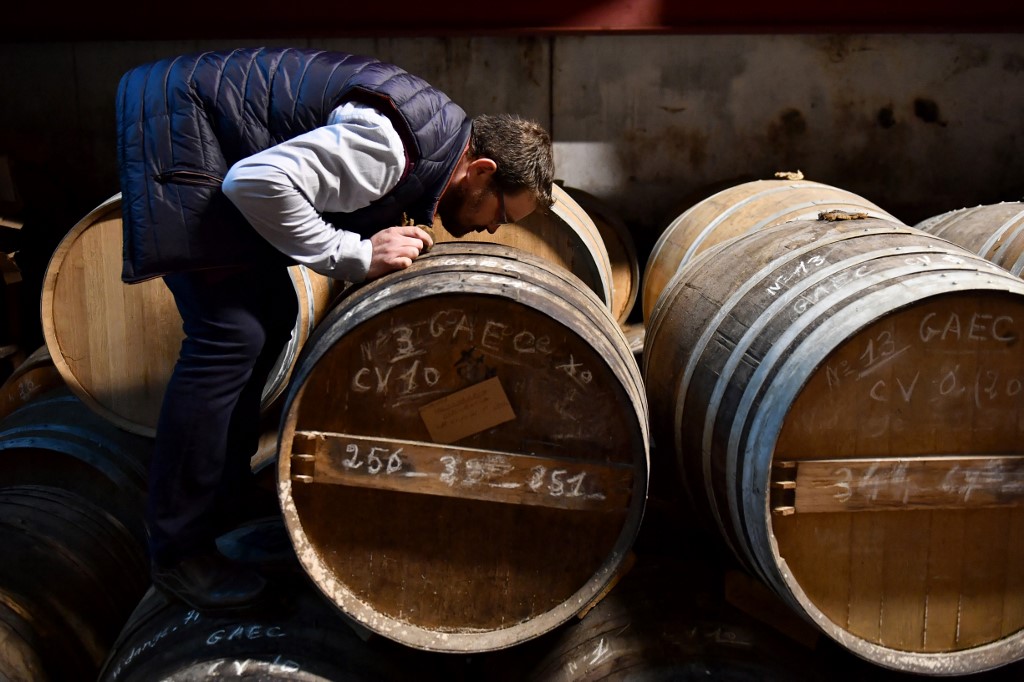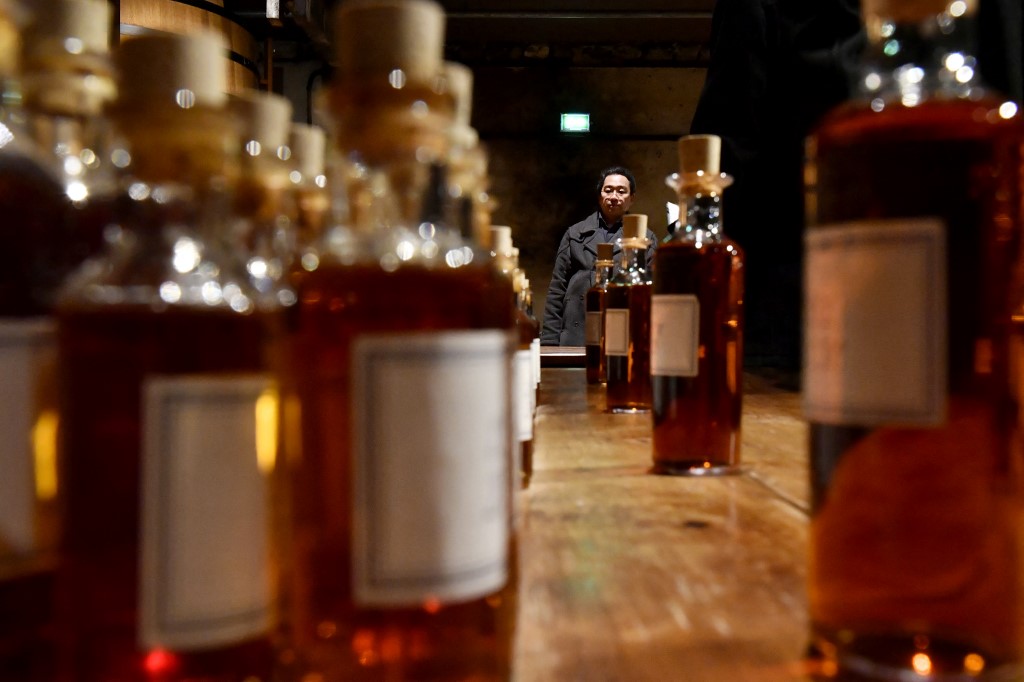While the French are small-time drinkers of cognac, Americans consume almost one in two bottles produced in the vineyards north of Bordeaux thanks in part to the alcohol being promoted by US rappers as a symbol of wealth and luxury.
And while millionaires like Snoop Dogg and Jay-Z will still be able to afford their beloved “yak”, many other Americans might find it out of reach after US import tariffs of 25 percent come into force on Tuesday.
The US “is a fast-developing and priority market for our industry, which is even showing growth this year despite the impact of Covid-19,” the director general of the BNIC cognac industry body, Raphael Delpech, told AFP.

A producer smells a barrel of ageing cognac in Domaine Marcadier-Barbot in Segonzac, southwestern France. Photo: AFP
The tariffs were confirmed by the Trump administration on New Year's Eve, marking the latest trade salvo from the outgoing US president and a further escalation of a long-running transatlantic feud.
Cognac, which is to be taxed along with other grape-based spirits from France and Germany, is a collateral victim of a dispute between Washington and Europe over subsidies given to their commercial plane makers, Boeing and Airbus.
European wines, cheeses and olive oils have been subjected to 25-percent import duties in the US since October 2019, while Europe has hit products from American orange juice to ketchup with its own measures.
“All French wines and spirits, not only cognac, are now being affected by diplomatic tensions that have nothing to do with us,” Delpech lamented.
FEVS, a French exporters' association, has estimated that the wine and spirit sector could lose more than €1 billion ($1.2 billion) a year in US sales due to the tariffs unless incoming president Joe Biden reverses them.

Cognac bottles. Photo: AFP
'Sipping Remy'
The trade spat has exposed the extent to which the centuries-old cognac houses of the Charente region have become dependent on American thirst for their products, some of which retail for hundreds of dollars.
The prospect of long-term tariffs has revived memories of the only major downturn the industry has known in the last 20 years during the 2008-2009 global financial crisis.
Explosive growth since then – exports to the US have doubled to over 100 million bottles a year – has been fuelled by the unlikely marriage of conservative cognac dynasties in their turreted chateaus to the flashy world of US hip hop.
Cigar-puffing Jay Z rapped about “sipping Remy on the rocks with my crew” in his 1996 hit “Can't Knock The Hustle”, while Busta Rhymes released “Pass The Courvoisier II” in 2001, a landmark moment for the industry.
Since then, major brands like Remy Martin, Hennessy, Courvoisier, Martell or Louis XIII have piled in on the commercial opportunities, forging partnerships with performers from Pharrell Williams, Nas, A$AP Ferg, to Quavo.
While favoured neat by rappers, cognac is also popular and widely drunk in cocktails by Americans.
Delpech says the industry has built “a very strong link with American consumers stage by stage over decades, by investing enormously.”
Short-term pain?
Jean-Pierre Cointreau, head of the high-end Maison Frapin cognac house, says he believes stocks in the US are high enough so that consumers will not see an immediate impact on prices.
And he hopes that the incoming Biden administration, which includes many francophile figures including the next secretary of state Antony Blinken, will work to reverse the tariffs.
“I tend to think that the French and American governments are committed to sorting out this problem,” he told AFP.
His company also has strong links in Asia, particularly in China, where cognac also benefits from its association with France's reputation for luxury.
“It's making this period very complicated,” Cointreau said of the US tariffs, adding that bar and restaurant closures due to Covid-19 shutdowns, plus a reduction in duty-free and airline sales, were hitting the whole industry.
“There's an accumulation of problems that are very regrettable.”



 Please whitelist us to continue reading.
Please whitelist us to continue reading.
I prefer Armagnac.
Tru*p will soon be gone. Only 7 days!